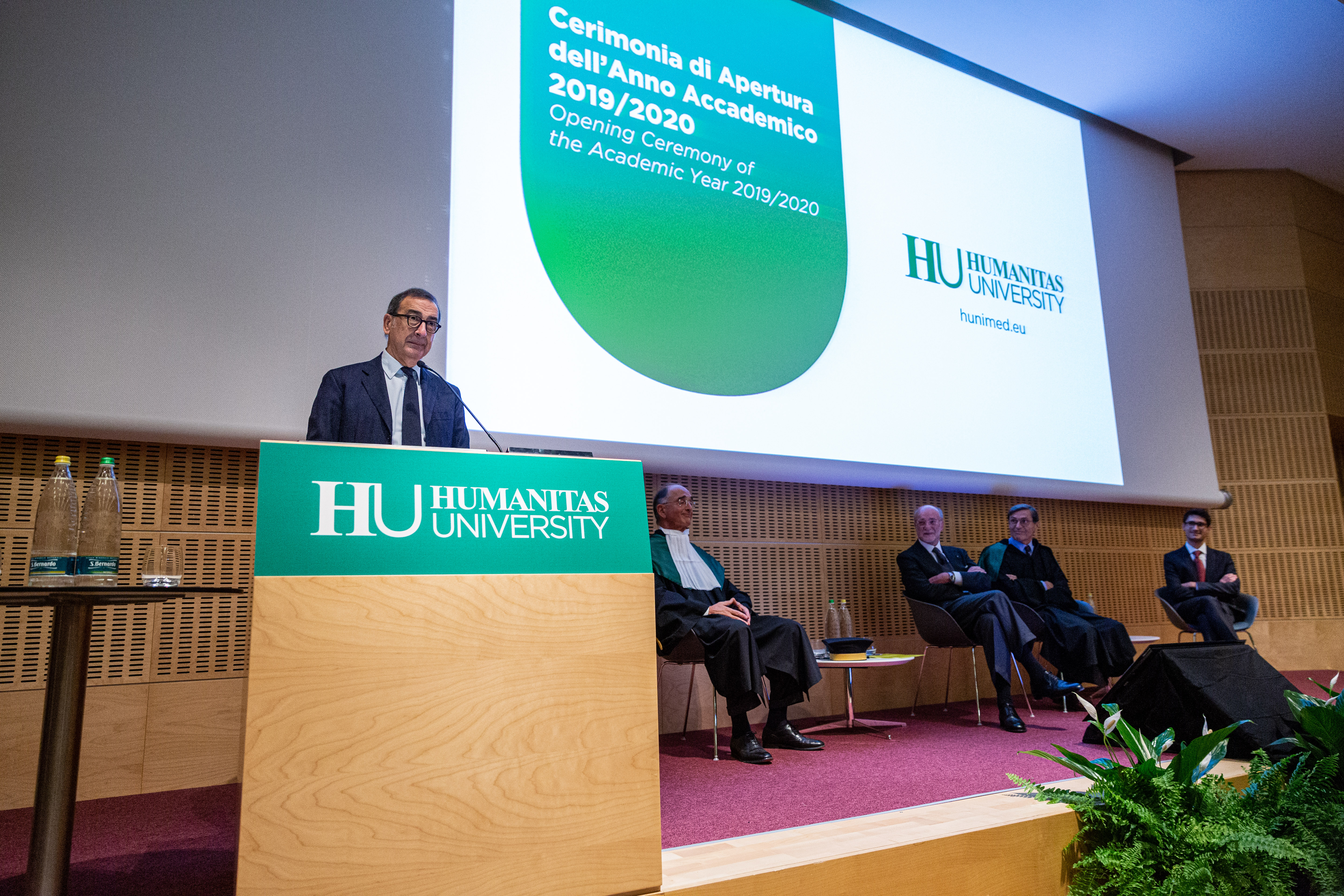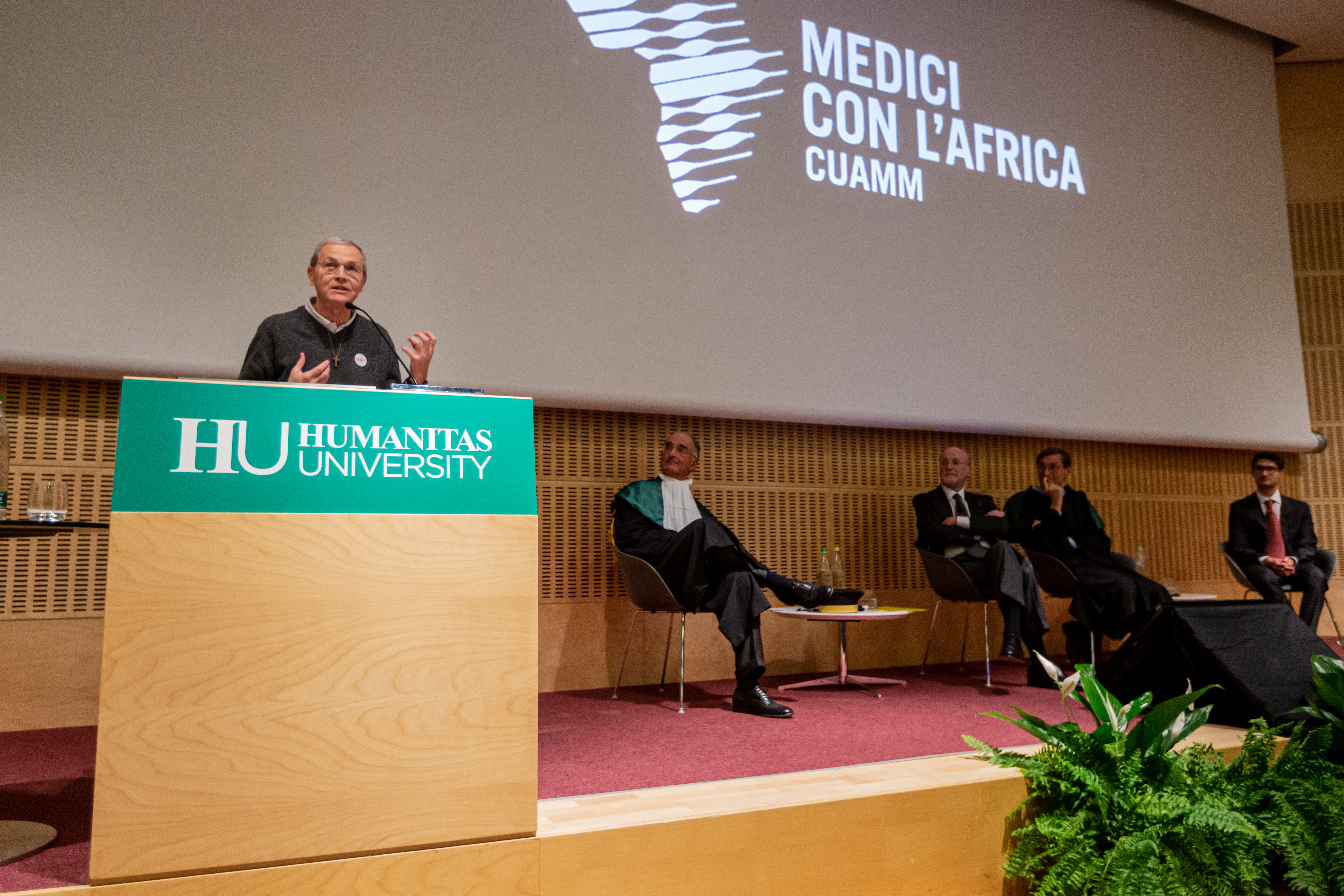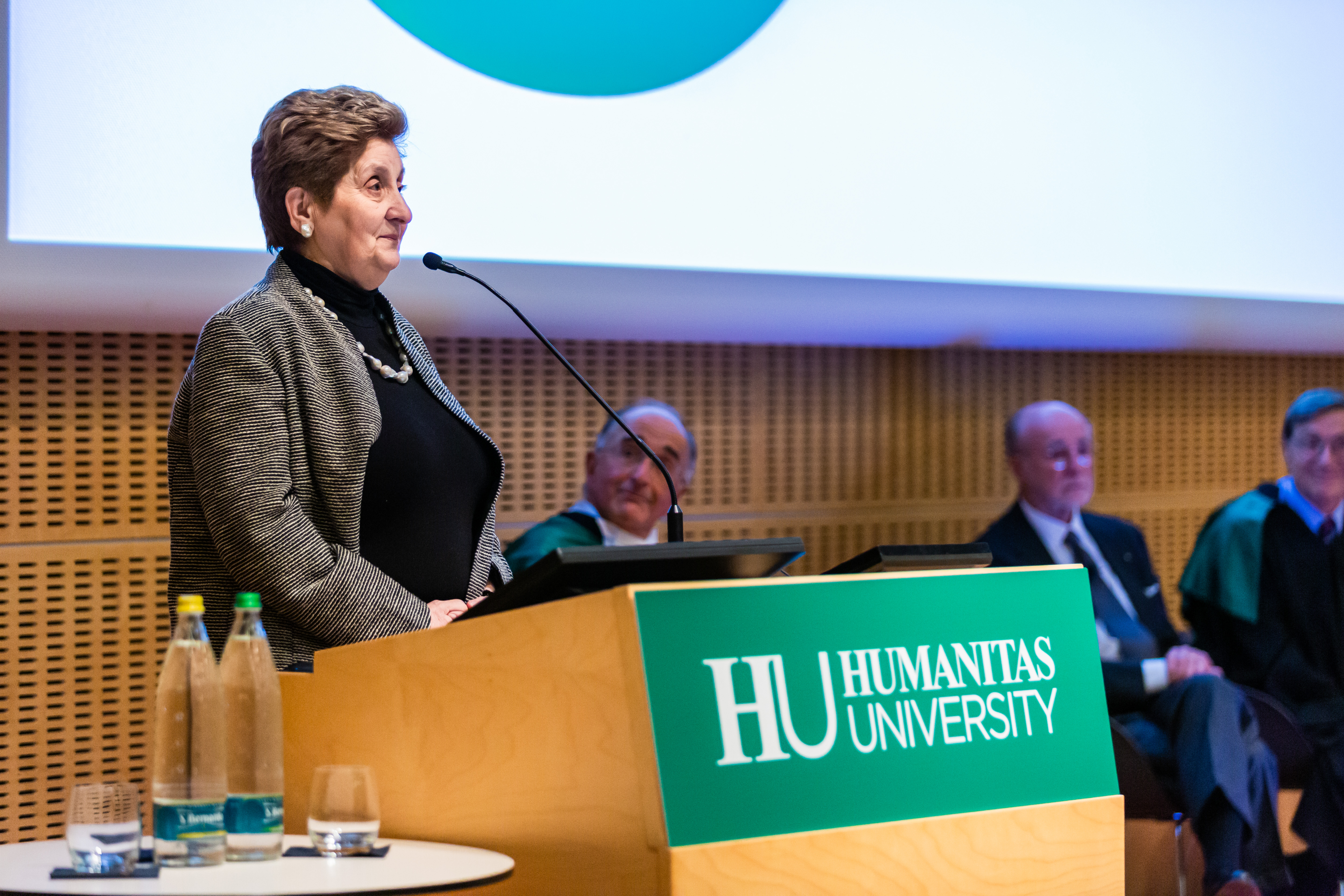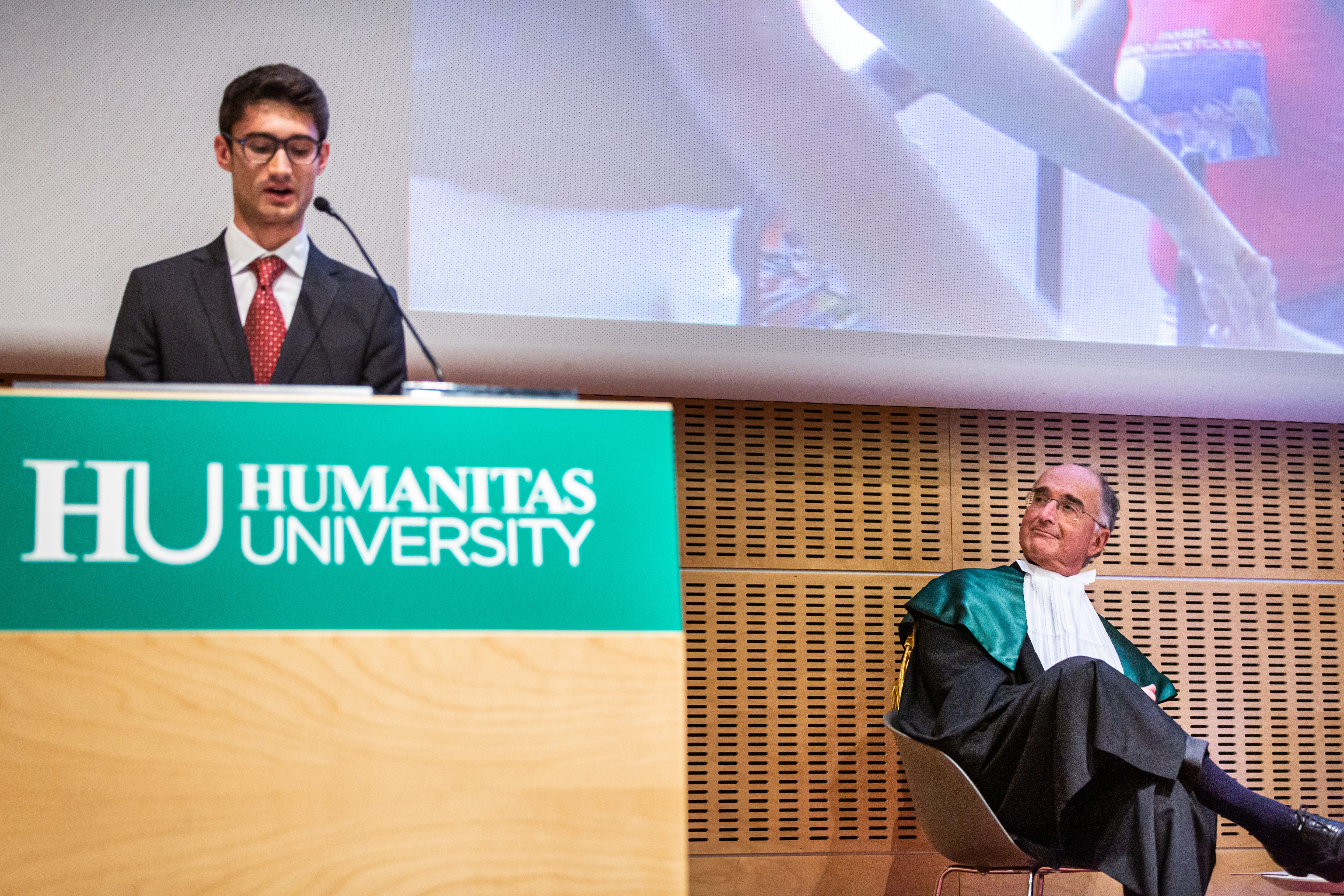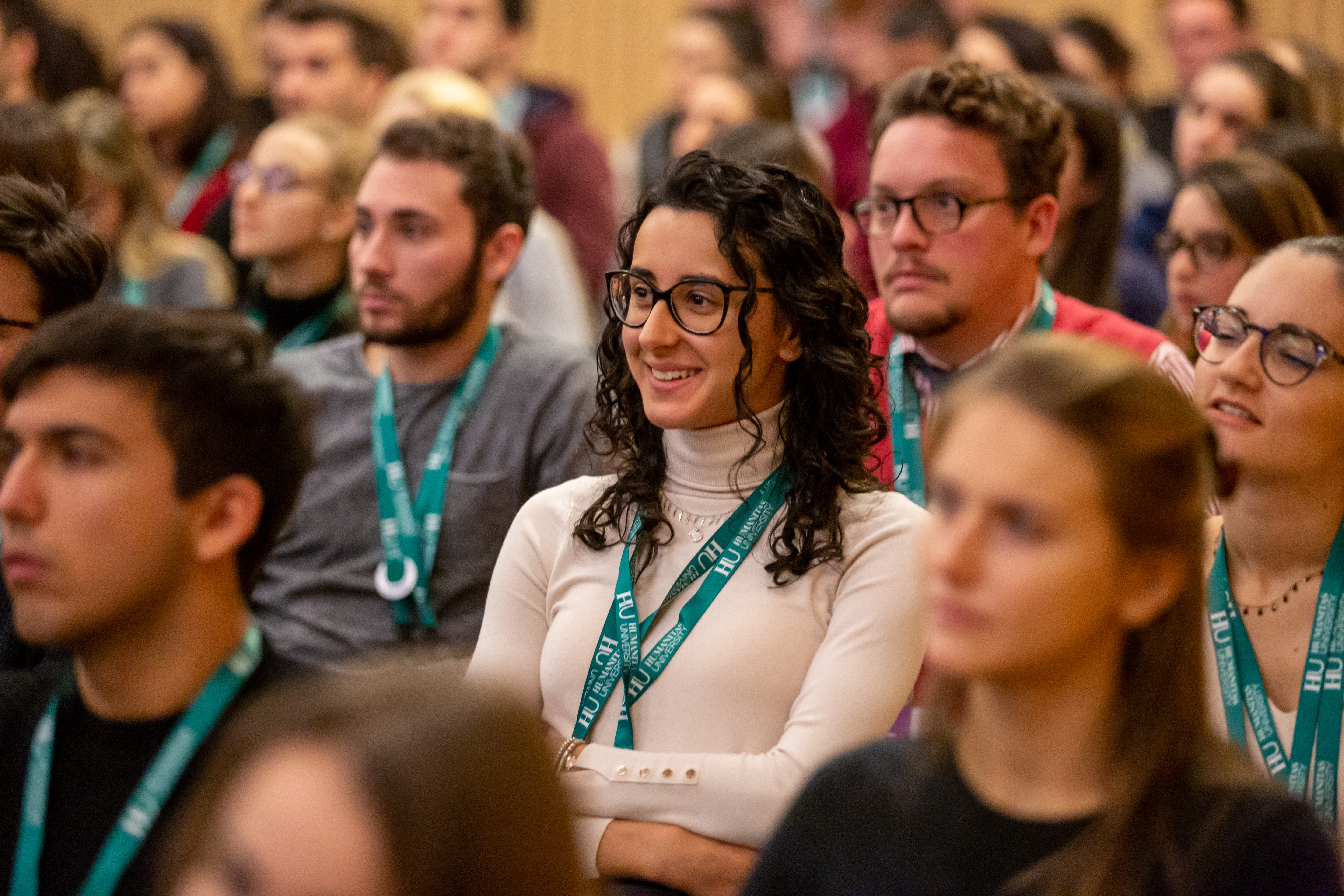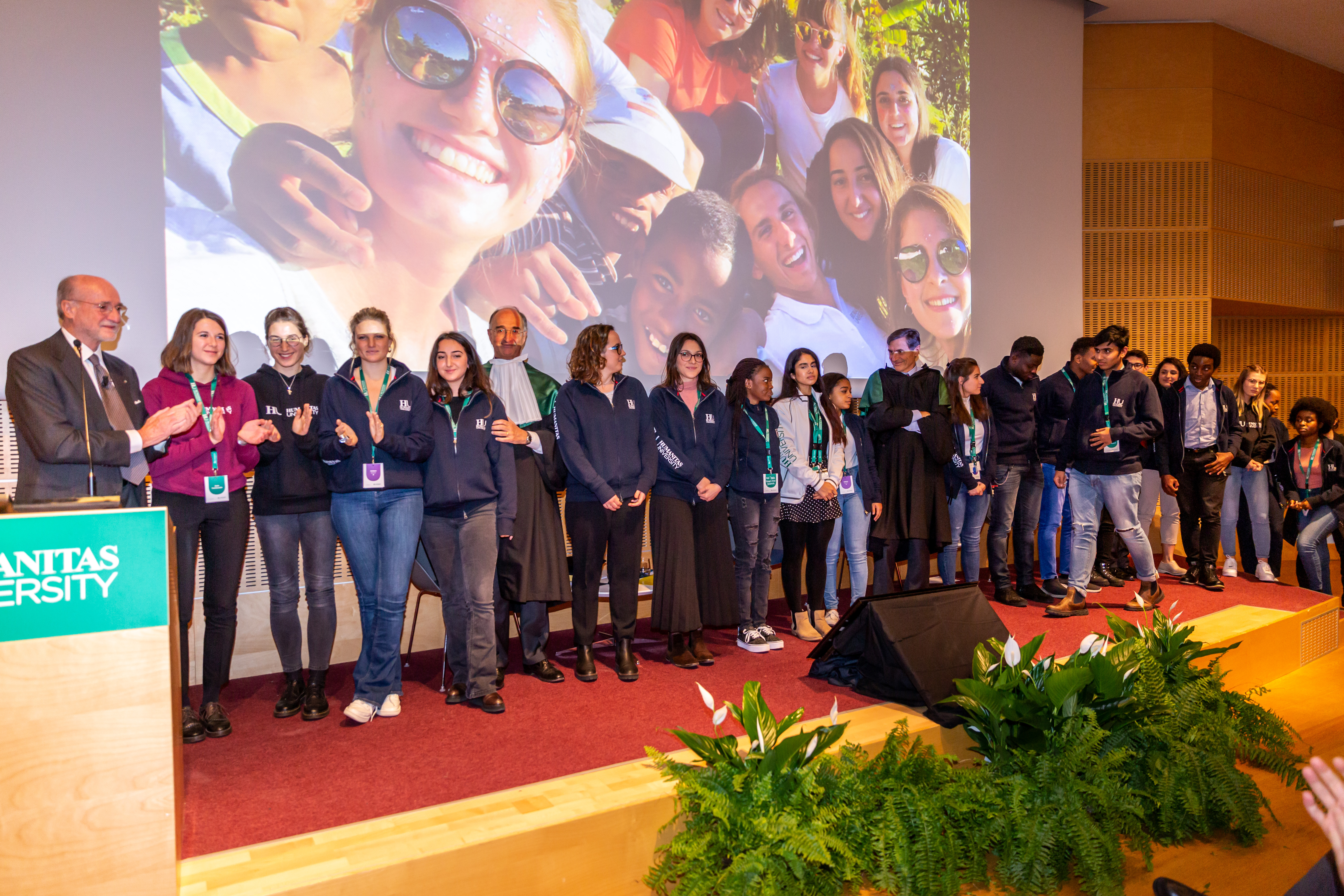Opening of the 2019-2020 academic year at Humanitas University: a commitment to innovative medicine and global health
On December 5th 2019, Humanitas University inaugurated its sixth academic year.
Those taking part in the event included rector Marco Montorsi, the Deputy Minister for Health Pierpaolo Sileri, Welfare Councillor for the Lombardy Region Giulio Gallera, the Mayor of Milan Giuseppe Sala and the Mayor of Pieve Emanuele Paolo Festa.
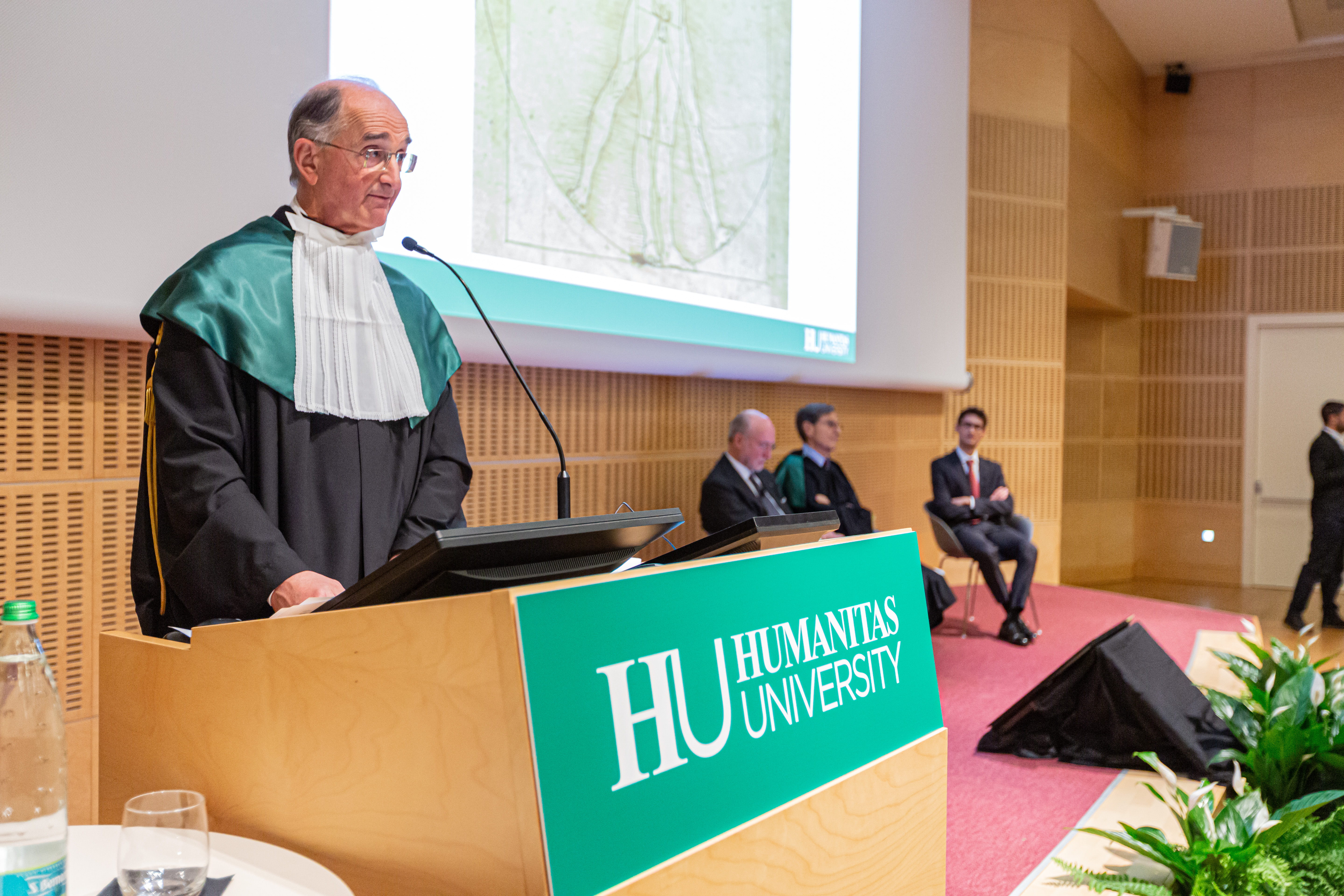
The ceremony was also attended by Don Dante Carraro, Director of Cuamm-Medici con l’Africa, and Mariella Enoc, President of the Bambino Gesù Hospital, with whom the University has been involved in an educational joint initiative called the Bangui project since 2018. This project was created following the Pope’s appeal to help the children’s hospital in the Central African Republic.
Humanitas University, an international reality
The university, dedicated to Life Sciences, where teaching is conducted entirely in English, is closely integrated with the IRCCS Istituto Clinico Humanitas in Rozzano.
In addition to the International Medicine course and the new MEDTEC School, created together with the Polytechnic of Milan, there is also a degree course in Nursing and a degree course in Physiotherapy. Lessons are held at the new Campus, designed according to the most modern standards in terms of technology and environmental comfort to encourage opportunities for teachers, researchers and students from all over the world to meet and exchange ideas. Inside the Campus is the Simulation Lab, which includes the Mario Luzzatto Simulation Center and an Anatomy Lab, a high-tech space among the largest in Europe, which is available to students, postgraduates and health professionals.
The challenge of Humanitas University in 2020
In addition to highly innovative training, the new academic year will focus on raising the awareness of future doctors and health workers about the importance of sharing experiences and also making a professional and human commitment towards the poorest and most disadvantaged countries in the world, such as Africa.
This was underlined by Gianfelice Rocca, President of Humanitas, in his opening speech of the academic year 2019-2020: “For a university like ours, which has made innovation and technology a distinctive element, focussing on Africa for the inauguration of the academic year is an important opportunity for reflection on the need to be innovative even in very different contexts. Africa is now a frontier because a large part of the world’s population lives there, and this trend is set to increase in the future. It is a land of challenges concerning demographic, geopolitical, healthcare and innovation issues. Challenges that I hope the future health professionals we train will be able to take up and to which they will make their contribution. I am thinking, for example, of the students of MEDTEC School and their potential role in a medical world that, thanks to technology, finds innovative solutions that respond to the needs of a territory so profoundly different from our own”.
Humanitas University’s commitment in Africa
Last year, the Bangui Project, coordinated by Dr. Maria Grazia Bordoni, already saw the involvement of doctors, healthcare workers and teachers from Humanitas University. Thee people devote themselves to others by running courses on surgical techniques, teamwork and leadership in Bangui.
Two graduates from the University of the Central African city are also expected to arrive at Humanitas for an in-depth study of diagnostic imaging between February and May next year.
Marco Montorsi, the university rector, stressed the importance of Humanitas University’s participation in the project: “As an institution we have a duty to take up the challenge of understanding the needs of patients and training health professionals capable of acting effectively anywhere in the world, therefore ready and open to question what they have learned to adapt it to the different scenarios they will face, whether in Italy or elsewhere”.
The continuous growth of Humanitas University
Marco Montorsi also wanted to underline the marked development of the university in these six years of activity and the investments made to become a significant presence at international level.
“The balance of our first six years of life is very positive: we have grown and we have continued to invest in innovation. The strong synergy and integration with the world of clinical practice and research has allowed us to feed a virtuous circle that has attracted experienced and prestigious teachers and researchers, thanks to this opportunity to form part of a highly valued international context that is recognized throughout Europe,” said the rector.
“The number of students has grown from the first 100 pioneers in 2014 to over 1,400 young people today. We have started new degree courses and recently set up the MEDTEC School, which was achieved with the Polytechnic of Milan, renowned for its excellence. In terms of postgraduate education, we are home to many schools of specialization, and offer various PhDs and Masters. In addition, our Simulation Center has just been extended to include the new “CUBE”, a facility for technology and knowledge-sharing dedicated to trainees, 24 hours a day, 7 days a week, and equipped with the latest technologies such as arthroscopic simulators and laparoscopy, stations for practising sutures and simulators for the management of airways and emergencies,” concluded Montorsi.

